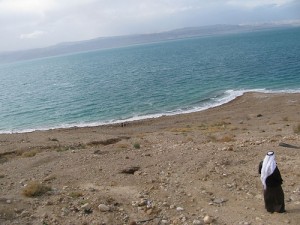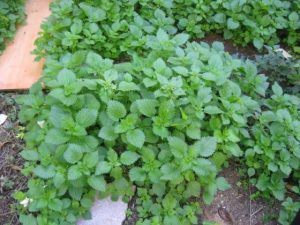 With input from over 100 Middle Eastern leaders, the Swiss government has produced a positive tool that could transform regional water policies.
With input from over 100 Middle Eastern leaders, the Swiss government has produced a positive tool that could transform regional water policies.
There are no foregone conclusions. How the next few decades proceed depends on us, on actions that we take today. We know that the Jordan River barely exists six months every year, such is its decline. We know that the Dead Sea is shrinking. And we know that sixty percent of Syria is likely to become an uninhabitable desert. But this is not the end of the line. A new report called “Blue Peace: Rethinking Middle East Water” compiled by the Strategic Foresight Group provides leaders of Turkey, Syria, Iraq, Lebanon, Jordan, Israel and the Palestinian Territories with long-term policy options that could transform regional political disturbance and ecological destruction into a peaceful, cooperative and rejuvenated Middle East.
The report received input from over 100 leaders, including serving and former ministers, senior officials, and experts from each of the seven countries. This input came via political consultations, research papers, an Internet forum, and three workshops held in various countries throughout 2010.
The Swedish International Development Cooperation Agency and the Swiss Agency for Development and Cooperation and Political Affairs provided financial support, as did A K Party and the State Hydraulic Works (DSI) of Turkey and El Majlis El Hassan of Jordan.
The group recommends that governments establish a Cooperation Council for Water Resources – a political mechanism that will establish common standards for measuring water flow and quality, that will set goals for sustainable management of water resources, and adapt regional strategies to combat climate change and drought.
By incorporating principles of cooperation and common goals, and by creating a regional climate change model that helps leaders visualize the challenges at hand, a Cooperation Council can transform existing disagreements, depleting rivers, climate risks, economic limitations, and a low technological base into a spirit of cooperation. With this new model, rivers will be rejuvenated, countries will cooperate to combat climate change, and high technology innovations can be incorporated.
Among the highlighted challenges include the dwindling Jordan River, which declined from 1300MCM in 1960 to 15MCM during ongoing droughts; the renewable freshwater resources in the mountain aquifer shared by Israel and the Palestinian Territories reduced by 7% in the last decade or so, while the west Galilee aquifer reduced by 15-20% during the same time; and the Dead Sea, according to the report, could become a lake within the next 50 years and eventually disappear if new policies are not incorporated.
Peaceful cooperation creates winners on all sides. Continued fighting will create a region full of losers.
Interested readers can visit Strategic Foresight’s website for a list of regional water challenges and recommended solutions.
More on forging transboundary water agreements:
Gidon Bromberg on Water Security and Sustainability in the Middle East
Leaders in the Middle East Need to Take a Big Jump to Address Environmental Issues
Israel, Jordan and PA Get Water/Peace Group Win Onassis Prize
image via CiuPix



